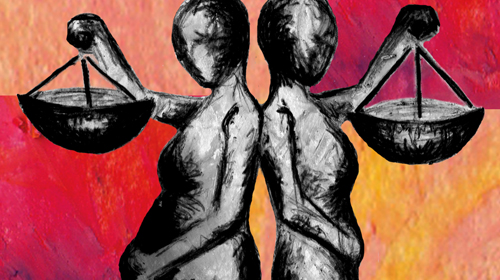
The House Judiciary Committee has held eight anti-abortion or anti-family planning votes or hearings so far this Congress. This morning, they’re scheduled to make it nine. The Committee will be considering the so-called “District of Columbia Pain-Capable Unborn Child Protection Act,” which would ban abortion in the District of Columbia at 20 weeks.
This ban would endanger women’s health. The list of things that can go wrong during a pregnancy is long. A woman could suffer blindness, kidney failure or permanent infertility because she was denied the care she needed by this bill. The only exception to the bill’s criminal penalties is when a woman’s life is in peril. The ban would thus force a woman and her doctor to wait until her condition was terminal to finally act, but by then it is often too late. It’s a restriction as unconstitutional as it is cruel. Courts have held time and again that restrictions on abortion have to have exceptions to preserve a woman’s health. This ban could even bar doctors from acting in a medical emergency. This proposed ban also ignores the fatal fetal conditions that develop or are detected in mid or later pregnancy. In May, the House Judiciary Subcommittee heard from Christy Zink, a D.C. resident who learned mid-way through her pregnancy that if she carried to term, she would, tragically, give birth to a baby missing half his brain.
“I am horrified to think,” she testified, “that the doctors who compassionately but objectively explained to us the prognosis and our options for medical treatment, and the doctor who helped us terminate the pregnancy, would be prosecuted as criminals under this law for providing basic medical care and expertise.”
If this 20-week ban had been in place at that time, Christy could have found herself in the same position as Danielle Deaver, whose water broke months early, at 22 weeks. She sped to the hospital, only to be told that her fetus had no chance of survival – her lungs would never develop; she would never be able to breathe. Danielle and her husband made the best decision for their family – to end the pregnancy and their suffering. But Nebraska, where the Deavers live, had already enacted a similar abortion ban, and therefore her doctors were prevented from giving her the care she needed. She was forced to wait for 10 days until her body finally expelled the pregnancy.
As Danielle put it: “There are no words for how awful the 10 days were from the moment my water broke to the day my daughter died. There are no words for the heartbreak that cut deeper every time she moved inside of me for those 10 days.”
Danielle shared her story to save other families from suffering the same tragic denial of medical care. She’s written letters to the House Judiciary Subcommittee, as well as to Arizona’s governor, who turned a blind eye and signed that state’s ban on April 12, 2012. Other states drew different conclusions when women shared their stories. The Virginia legislature rejected such a ban after hearing from Tara Schleifer, who ended her pregnancy after receiving a tragic fetal diagnosis, and then making the best decision for her and her entire family: “Learning that our baby would most likely die before he was a year old — and that being after multiple, traumatizing medical interventions — seemed inhumane.”
A woman shouldn’t be denied basic health care or the ability to make the best decision for her family just because some disagree with her decision. This ban shamefully plays politics with women’s well-being; it has no place in our laws.
Learn more about the war on women: Sign up for breaking news alerts, follow us on Twitter, and like us on Facebook.





